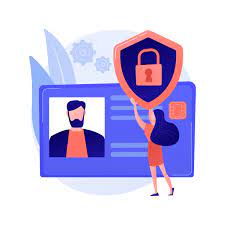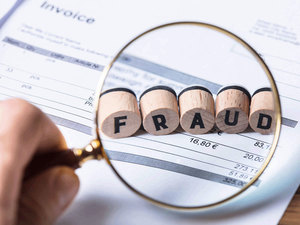It is an extremely stressful situation when you find out that you are the victim of identity theft or some other type of credit score malfunction. It is costly in terms of lowering your creditworthiness. Though you are financially protected, you are still an identity theft victim. It takes significant action and commitment on your part to correct it.
Identity Theft is when someone steals your personal information with the intent of establishing credit under your name and subsequently charging goods and services to you. It could include someone using your credit card(s) to make unauthorized purchases or using your identity to take out loans. The type of personal information a criminal can use of you includes your name, address, and social security number. Several ways are commonly employed to produce this information:
- Obtaining discarded bills or statements
- Gaining possession of a lost or stolen wallet
- Stealing your mail
- Acquiring a copy of your credit report
- Through fraudulent and deceptive internet scam
Make sure you discard your bills, statement, or old credit card properly so that they cannot be a weapon for criminal-minded people to use for your identity. In case, you lost your wallet or it was stolen, it is important to file a complaint, and you should also stop using all your debit and credit cards. Beware of internet scams; you do not have to open each link until/unless it is from genuine source.
In India, 4 out of 10 people (39%) have experienced Identity Theft. It also found that while 61 percent of respondents feel well–protected against identity theft, 63 percent would have no idea what to do in case of identity theft, and more than three-quarters (79 percent) wish they had more information on what to do if it were to happen. (Source from https://economictimes.indiatimes.com/tech/internet/4–in–10–indians–have–experienced–identity–theft–report/articleshow/75029916.cms)
The report reveals that men are more prone to identity thefts and cyber–attacks than women. About 44% of participants who had faced identity theft were men, while 33% were women. Similarly, 84% of victims of some form of cybercrime were men compared with 76% of women. Compared with global peers, 81% of Indians are more worried about their privacy. The global average is 67%. (Source from https://www.livemint.com/news/india/every–four–of–10–indians–have–experienced–identity–theft–norton–survey–11586245264537.html)
We are sure now you would like to know how you can find that you are a victim of identity theft. Hence, let’s get into the warning signs which should not be ignored from the early stage itself:
Unfamiliar activity on your credit report
Your credit report will list new credit cards as that have been issued in your name that you never applied for or received or accounts that you did not open and know nothing about.
Charges for the account you know nothing
You will notice unauthorized charges on your monthly credit card statement or bank statement.
Missing or unfamiliar bills
You stop receiving monthly credit card statements or important bills altogether. In addition, you begin receiving bills from companies you have never done business with.
You receive a call from debt collector
Someone can use your name and personal information to rack up debts. You begin receiving calls from creditors or collection agencies about accounts you know nothing about.
If you discover that you are a victim of identity theft or some types of credit-related fraud, here are some steps to follow:
- Notify your creditors and bank immediately to discuss this issue. In case, you had a credit card lost or stolen, or you find out potentially fraudulent charges on your statement, report that immediately to the bank or credit card issuer.
- Immediately contact the local police department, and file a report and obtain its copy.
- Do not throw away or destroy any paperwork related to credit fraud or identity theft.
- Change your password and PIN on all Debit cards, Credit cards, Internet banking, and Mobile banking.
- File a complaint on the National Cyber Crime Reporting Portal (https://cybercrime.gov.in/).
- Hire a professional Credit Counseling Organization or Credit Counselor to assist you in this matter to resolve it.
These are all the basics you should know to avoid any kind of identity theft and credit-related fraud. We assume this will help you in many ways, and we wish all of you to be protected from all kinds of fraud.
The best way to prevent identity theft is to monitor your credit report now and then. Make sure to note down the date and the day you have reviewed your credit reports in your daily planner or mobile calendar so that you can review it again every six to twelve months. It is indeed a good habit to keep an eye on your credit. Thus, if someone uses your identity to apply for a credit card or some types of loan, you will find out immediately, and you can stop it before it is too late.
Monitoring credit reports will help you manage your financial situation better than it was before. It is a good idea to review your credit reports before applying for credit, Such as, a mortgage loan, a car loan, a home loan, or a credit card.








